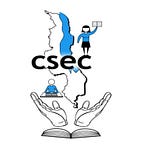EDUCATION AFTER THREE WEEKS: WHAT NEXT?
The Education Hub with Benedicto Kondowe
On Sunday, the 24th of January, the whole world celebrated International Education Day under the theme “Recover and Revitalize Education for the Covid-19 Generation.” All across the globe, the pandemic has caused catastrophic disturbances of all learning activities to an unprecedented magnitude and gravity. The theme of this year stresses the importance of safeguarding education even during such crises.
According to UNICEF, 258 million children and youth still do not attend school; 617 million children and adolescents cannot read and do basic math. The coronavirus has exuberated this. World Bank estimated that over 1.6 billion students have been affected due to school closures. Another estimated 463 million are expected to never return, with the bulk of these belonging to third world countries especially those in the sub-Sahara.
Prolonged school closures, only compound existing challenges and makes the loss of education even more threatening. Last year alone, according to a rapid assessment by the Ministry Education, Malawi registered over 20 thousand teenage pregnancies and child marriages- an 11% increase in teenage pregnancies in the period of March to July 2020 compared to the same period in 2019.
Moreover, according to the National Planning Commission’s study on the impact of Covid-19 in Malawi, the first closures alone schools resulted in the country incurring social costs on an estimated $5.2 billion (K4 trillion) — the present value of income loss for 6 million children over the next 50 years. Given that the benefits from school closure could not result in a higher number of deaths avoided than what would come from moderate social restrictions (6,800 deaths), the maximum benefit from the policy would be $228 million. This means that on current knowledge, a policy of school closures will leave Malawi much worse off with a net social cost of around $5 billion.
In the wake of this, it is imperative that all decisions made by leaders pertaining to the education sector should be strategic, pragmatic, comprehensive and clear. Even in times of emergency, our government is still obligated to protect the right to education for all. In this New Year, and as we battle with the second wave, the focus in the sector should be towards the recovery of the sector due to the school closures and not catalyzing the effects to even more severity.
To this effect, one of the main concerns is the inconsistencies in directions between the Ministry of Education and the President. For instance, in a statement dated the 23rd of January, the ministry advised that schools should be recall the students who had gone home. However, during his speech the very next day, the President was against this course of action. Instead, he instructed that the students who had left should be tested and declared negative prior their return. These inconsistencies can be catastrophic for the sector. Government seems to be making all its decisions on a whim that have the potential to disrupt the education sector in the country to an even grander scale. We therefore urge government to speak with unified voice, and be in control of the response in the sector.
As much as Chakwera’s initiative is the more logical one, it serves only to portray that the government machinery is not as well-oiled as it should be in this time of crisis. There is very little clarity and even less coordination in the decision making process under the Tonse administration which can lead to an implementation dilemma. A situation that if left unaddressed could have irrevocably disastrous consequences and leave the education sector in shambles.
In his statement on Sunday, the President mentioned that there was a special fund on K17.52 billion to help some of the most effected clusters in mitigating the covid-19 pandemic. Although mentioning education has one of the clusters, the President did mention how much would be allocated to the sector. This is a crucial starting point. The government needs to break down these allocations so that the sector can start forging ahead to recovery.
In that regard, all strategic stakeholders and partners should come forth and support government in planning and the decision making process. Any conclusions after the three weeks’ closure should be guided by thorough research and evidence. This is a critical moment for the education sector because the three-week closure is drawing to an end. Schools need to be properly guided on their prospects of reopening or not. This will require working on the preconditions for reopening.
As it stands, we seem not to be on top of the game. There is nothing tangible happening in most schools be it fumigating, screen or mobilisation of preventive equipment and supplies yet we are just a week away from the lapse of the three-week closure. We at the hub believe it is high time the government gets its act together and starts making decisions that promote and protect the right to education. In order to do this, the government needs to develop a coordinated response in the education sector.
